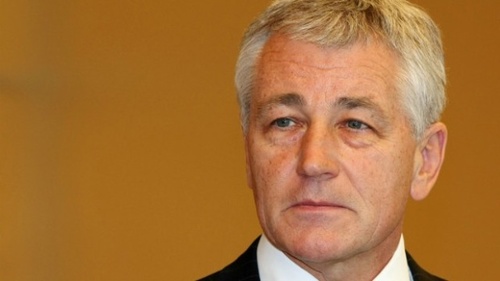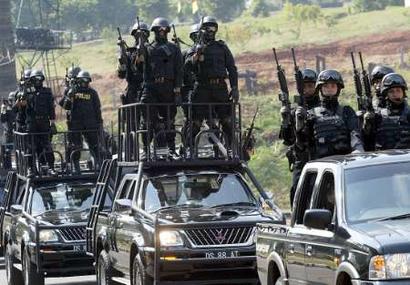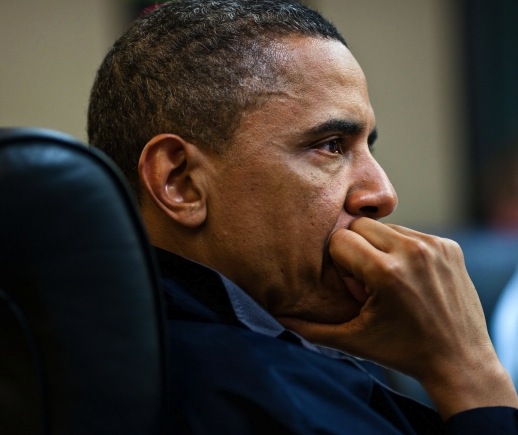
Spencer Ackerman over at Danger Room posted an important piece with a vital emphasis on Chuck Hagel, countering the conviction that Hagel is a dove on foreign policy:
Spying on Americans’ communications without warrants? Have at it, said Hagel. A ballistic missile shield? Yes, please, and who cares if it angers the Kremlin. NATO’s 1999 war in Kosovo? Hagel was willing to flood it with U.S. soldiers.
Hagel earned his reputation as a skeptic of American military adventurism, as anyone who remembers his consistent criticism of the Iraq war will remember. But that criticism has blown Hagel’s reputation for dovishness out of proportion: After all, he voted in 2002 to authorize the war. National Journal’s Michael Hirsch insightfully argues Hagel’s reward for asking hard questions about the war is to have official Washington forget the rest of his record. So consider this a refresher.
Even as Hagel was making himself George W. Bush’s least favorite Republican, he aided Bush in crucial moments in congressional showdowns over the limits of presidential power in wartime.
When it became public that the NSA was scooping up Americans’ communications without judicial authorization, Hagel, a member of the Senate intelligence committee, defended the NSA as striking “a very delicate balance, an important balance and an effective balance.” He advocated giving the government more spy powers through “updat[ing]” the “outdated” Foreign Intelligence Surveillance Act, which would become one of the bitterest defeats for civil libertarians and privacy advocates of the post-9/11 era.
The debate about Hagel in the pre-nomination phase – and now, most likely in the post – got caricatured by commentators across the spectrum. Those who rightly wanted to call out the Israel lobby and the crazed war-mongers in Congress for their latest witch hunt got caught up, I think, inadvertently buying into the inaccurate representation of Hagel as some kind of non-interventionist.
But the issue of Hagel demands a little nuance. Yes, Hagel learned to oppose the war in Iraq, but not when he was asked to vote for its authorization, when it counted. Hagel also opposed Obama’s surge in Afghanistan, a mindful position if there ever was one – and a lonely one to take in Washington. In recent months, Hagel has expressed firm unwillingness to commit troops to Syria or Iran.
This doesn’t make him a non-interventionist. It makes him marginally better than many of the other potential choices for Secretary of Defense. It’s relative, as is everything in politics. Those who categorically dismiss the significance of Hagel’s nomination, writing him off as a dime-a-dozen Washington war-monger at heart in an apparent attempt to counter the admittedly unwarranted reputation he has generated as a dove, are no better than the solid anti-war, anti-empire voices who papered over his hawkish transgressions.
This is what I tried to convey in my latest Op-Ed at The Dailer Caller, entitled “Chuck Hagel’s views are mainstream.” It wasn’t an endorsement. It was a statement of fact and a response to the hawks who tried to portray him as outside the mainstream in the most pejorative way. It had as much negative baggage as you’d expect from someone who considers himself decidedly not in the mainstream. But it also meant that there are marginally better (or less bad, whichever you prefer) mainstream views than others.
Hagel deserves harsh criticism for his terrible past positions, including voting for the Iraq war, supporting the intervention in Kosovo, backing the Bush administration’s warrantless wiretapping practices, and so on. And he also deserves the harsh criticism he will undoubtedly receive if he is in fact confirmed as Defense Secretary, for all of the terrible things he is sure to carry out. But none of this means his potential rise to that office will not have been a small victory in the sense that someone who openly criticized Israel’s unwarranted influence and explicitly disapproved of war in Iraq, Afghanistan, Iran, and Syria made it through the Washington gauntlet. In other times, I would not have considered that possible.
What was it that Murray Rothbard said of thirsting maniacally for instant victory?






